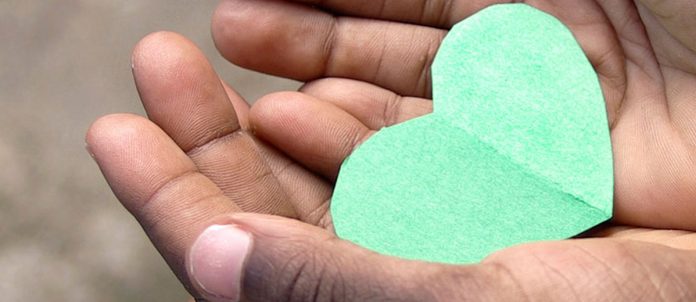Mansoor Moin Akhtar highlights the importance of the charitable mindset set forth by his father
Often, we as a society silently decide upon norms which carry forth through generations. Sometimes in this prolonged chain of tradition, we pause and evaluate the righteousness of the act we consistently followed without question. When the evolution of our thought process fails to align with our practices, we cringe because it means times have changed. I feel we are currently at that crossroads in our history yet again and the practice in question is our way of giving. Being born a Muslim, I do believe charity is one of the focal points of existence. From that religious standpoint, if I help my fellow man, ultimately I am also helping myself in the grander scheme of life. However, at one point or another, each and every one of us depends on another for survival; an infant depends on his guardians to learn how to fit into society, an employee on his boss for the monthly paycheck to run the house, a student on his teacher to better understand the vast unexplored world before him and the list forever continues because each of us have a trait or skill another needs and requires. Charity, then, is not a favor to anyone. It is just one of us depending on another for survival, as the rest of us may need to at some other point.
A reoccurring excuse I often come across from people to avoid giving is they have used up their generosity for purposes other than which they had intended. In other words, their hard earned money is misused by the people they give to. Yet, these occurrences, which indeed exist in our society, need not deter us from charitable causes entirely. There are legitimate causes which aid those who suffer from hardships beyond our imaginations. Ranging from mental and physical disabilities to genuine inabilities for a single provider to feed his growing family, these hard truths are found in most slums and a significant portion of our rural population in our own country. Islam regards our intentions highly. Give with the right intentions and more often than not, it will find its way into the right hands.
I owe my outlook on this topic to my father, Moin Akhtar, who never shied away from neither charity nor charitable causes. He lived an exuberant life, dined with the untouchables and stood shoulder to shoulder with great men. However, the satisfaction that I saw on his face was when he could be of any help to another human being. He would often say, “I have learnt the secret to multiply all your worldly possessions. I have learnt how to take from God. Give the last currency bill in your pocket in His name and He being the Most Gracious and Most Beneficent, will take it, multiply it three fold and return it back to you.”
Those are words he lived by and unless his life was one giant coincidence that lasted sixty years, the “secret” he spoke of always proved to be true and I have been a personal witness to his “threefold” logic successfully put into practice by him throughout my life. He made it a point to never boast about what or how much he would give away. Never have I witnessed him offering any financial assistance to a person in front of another out of respect for the former’s dignity. Yet, after he passed away, hundreds of people came up to my family and me with utility bills, house loans, grocery bills and dowries for their daughters’ weddings that he had arranged silently. If there was any matter that he could not handle himself, he would contact his friends and have them help using their influence.
Our thought process needs changing, indeed. Charity is no favor or loan, but an investment in a belief much longer lasting. From a logical standpoint, it is an investment in a healthier, securer and a more progressive future for our upcoming generations. There is enough money in this world for all of us to reap equal joys and stand together. Giving must become an instinct to us than a mere afterthought. It does not have to be to an NGO or a fund of any sort. Unfortunately, the trust formed between these corporate conglomerates and the public seems to be dwindling down. Hopefully, that trend too can change with time. If that trust seems bleak still, we can give directly to those we feel need it the most; whether they ask us or not. Though I will argue that people running charitable initiatives have every right to earn through them, in the form of a legitimate salary, for the hard work they put into these initiatives to make them successful. Practically, it should be allowed for as it is equivalent to any other work and religiously, earning a salary through such a cause is allowed. However the numbers, accounts and salaries being disbursed through such an initiative should be public knowledge so that there can be decreased hesitation from prospective givers and they are able to contribute to that cause with an open heart and mind.
No longer should charity remain an option to us, we must transform it into a moral obligation. We can start slow, it need not be sudden. We can slowly sleep a little less, eat a little less, work a little more and give a little more for it is the only worthy ending to our grand story that will always demand to be told. I thank my father for giving me this goggle of perspective that made me cringe and realize that times have changed and we must change with it and re-evaluate our evolution.














